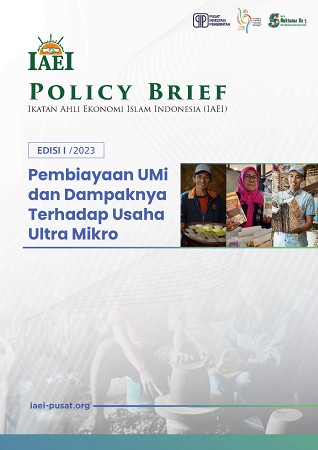The bottom of the pyramid of business entities in Indonesia is filled by Ultra Micro Enterprises (UMi), which are individually owned businesses that are run to fulfill daily needs and are smaller in scale than micro enterprises. In 2019, it was recorded that the proportion of micro businesses (including ultra-micro businesses) reached 98% of MSMEs in Indonesia, absorbed up to 89% of the workforce, and contributed 37.35% of Indonesia's GDP.
The significant role of ultra-micro businesses in the Indonesian economy does not mean that they are without challenges. Among the biggest challenges faced by ultra-micro enterprises is capitalization. Capital is particularly difficult for ultra-micro businesses due to factors such as limited financial literacy, access to information and education, and limited collateral. Consequently, ultra-micro businesses do not hesitate to borrow from moneylenders, which can lead to other problems.
To help capitalize ultra-micro businesses, the government has issued a financing scheme that focuses on targeting ultra-micro businesses called UMi financing since 2017. This financing uses the concept of revolving funds managed by the Government Investment Center (PIP) BLU under the Ministry of Finance. The distribution of UMi financing is carried out through Non-Bank Financial Institutions (LKBB) including Sharia LKBB. UMi financing is intended to provide easy and fast financing facilities for ultra-micro businesses and increase the number of entrepreneurs facilitated by the Government.
After approximately 5 years of UMi's journey, it is necessary to see how the impact of this financing on Ultra Micro Enterprises in order to evaluate and reduce UMi financing strategies and policies that are better in the future. Therefore, IAEI (Indonesian Association of Islamic Economists) in collaboration with researchers from the University of Indonesia and Airlangga University conducted a series of research on the impact of UMi PIP financing on Ultra Micro Enterprises in Indonesia.
